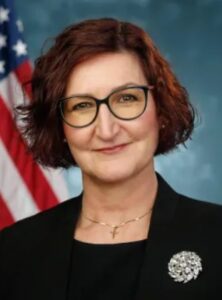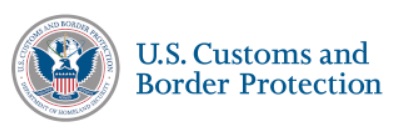
posted 2 months ago
Author


No results available
ResetU.S. Customs and Border Protection (CBP) has announced the agency’s 2024–2025 plan to accelerate testing and adoption of global interoperability standards, kicking off a new testing phase for innovative trade technology. The agency will work with private and public sector partners during the 2024 testing phase this fall, leading up to international testing in 2025.
Interoperability is the ability of different computer systems and software to communicate with each other. Interoperability standards are detailed guidelines for software development that enable different systems to connect and exchange data. CBP is focusing its efforts on select standards established through the World Wide Web Consortium (W3C). These standards will increase supply chain transparency and set the stage for faster, more secure data sharing by enabling federal agencies to safely exchange data with traditional and non-traditional trade entities worldwide, in near real-time. The agency believes better quality data earlier in the import process will lead to speedier admissibility determinations to the benefit of the government and the private sector. Facilitating the screening and release of compliant goods enables CBP to focus more resources on identifying and acting on non-compliant goods and entities. The agency’s approach also aims to allow businesses to maintain technology choice while communicating with CBP.
“Modernizing our trade processes and authorities is essential if we are going to keep pace with the volume and speed of today’s trading environment,” said AnnMarie R. Highsmith, Executive Assistant Commissioner of CBP’s Office of Trade. “Global interoperability standards established by CBP and its partners through the W3C will usher in a new era of supply chain transparency and data system flexibility.”
Two data standards groups, GS1 US and Global Legal Entity Identifier Foundation, or GLEIF, and one federal agency, the Food and Drug Administration (FDA), have agreed to participate in CBP’s 2024 testing phase. Testing will include data exchange and credential verification abilities in the e-commerce, food safety and natural gas sectors. Additionally, representatives of the Animal and Plant Health Inspection Service (APHIS) will observe the technical demonstration to evaluate data collection related to APHIS requirements. The 2025 testing phase will involve three tests of data exchange between CBP and select foreign customs authorities to confirm the agency can issue and exchange information in a globally interoperable manner.
CBP and the Department of Homeland Security Science and Technology Directorate (S&T) have been collaborating to explore new technologies. Through S&T’s Silicon Valley Innovation Program (SVIP), and working with a group of private sector companies − Mesur.io, Transmute, and Neoflow – CBP completed the first global interoperability standards tests in 2023. The tests were a technological success, opening the door for the 2024 and 2025 testing. The adoption of interoperability standards will be critical to the agency’s modernization of the Automated Commercial Environment (ACE), often called ACE 2.0.
“Partnering with private sector companies is crucial for the success of our first global interoperability standard tests,” said Melissa Oh, SVIP Managing Director. “By leveraging the expertise and cutting-edge technologies of industry leaders, we can ensure that these standards are robust, widely adopted and capable of addressing the complex challenges as we work toward a more secure, connected and resilient digital ecosystem.”
posted 2 months ago
Arbitration is a procedure wherein a dispute is submitted to one or more arbitrators who make a binding decision on the dispute. By choosing arbitration, parties opt for a private resolution rather than going to court…
posted 2 months ago
Business law refers to the body of law that applies to the rights, relations and conduct of persons and organisations engaged in commercial and business activities – also safeguarding the rights of shareholders…
posted 2 months ago
Family law is a broad area of practice that focuses on issues involving family relationships. Many lawyers choose to specialise in either matrimonial law or child law…
posted 3 months ago
Immigration lawyers provide guidance on the wildly differing processes, requirements, stipulations and regulations behind how individuals may become permanent residents or citizens of another jurisdiction…
posted 3 months ago
Environmental laws protect the natural world via a set of research-backed regulations, agreements and common practices governing how individuals/corporations interact with their surroundings when conducting activities…
posted 3 months ago
Energy law governs the commodification and taxation of energy sources, both renewable and non-renewable, also extending to the policies, politics and ethics instituted by the sector’s primary authorities…
No results available
ResetSign up for the latest legal briefings and news within Global Law Experts’ community, as well as a whole host of features, editorial and conference updates direct to your email inbox.
Naturally you can unsubscribe at any time.
Global Law Experts is dedicated to providing exceptional legal services to clients around the world. With a vast network of highly skilled and experienced lawyers, we are committed to delivering innovative and tailored solutions to meet the diverse needs of our clients in various jurisdictions.